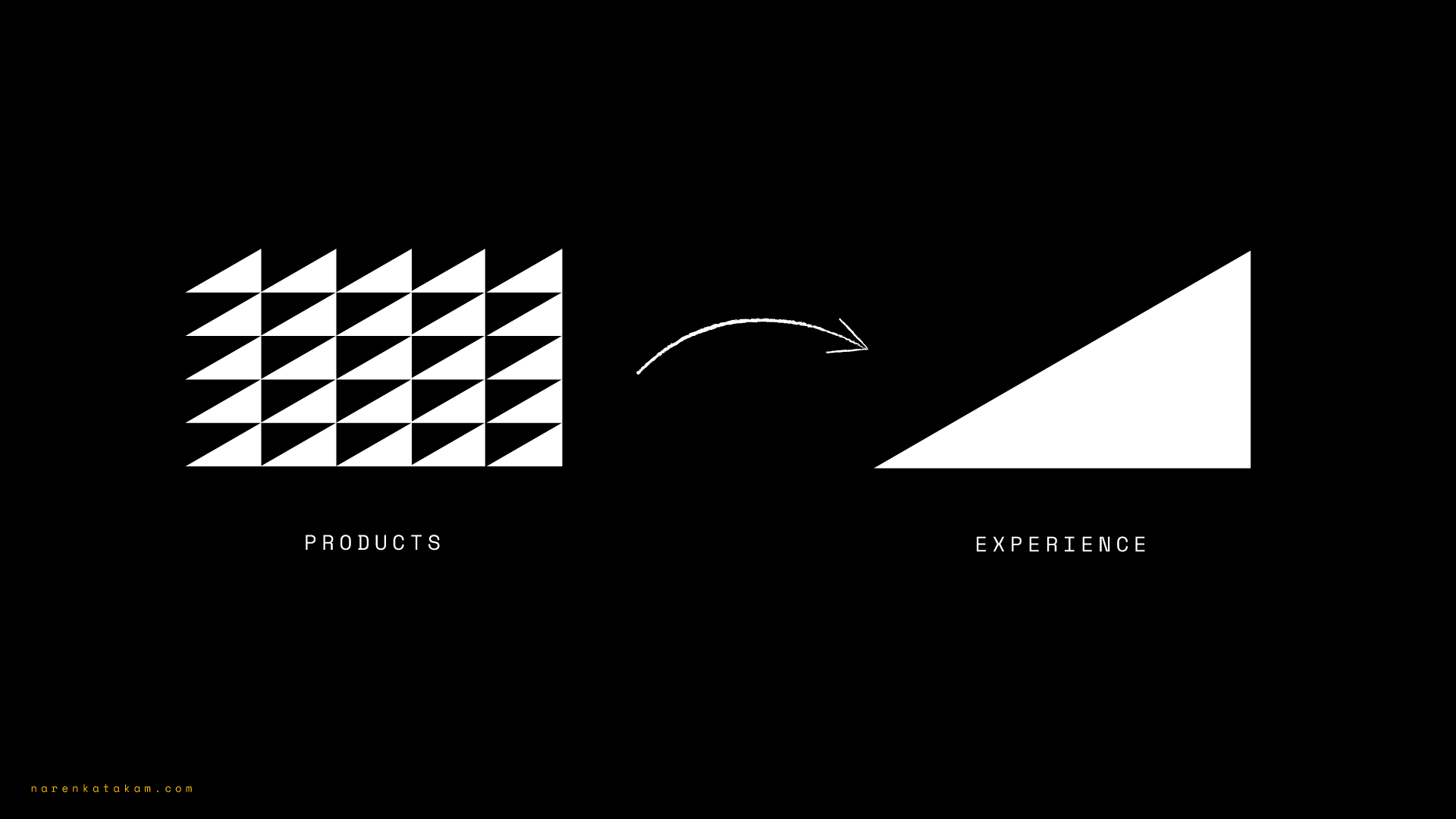Stop selling products and start selling the experience.
A guide to collaborating with other staff users to publish, and some resources to help you with the next steps of growing your business

The effort required to build a software product is reducing dramatically with an overabundance of tools we have at our disposal. Products are hacked together over a fortnight these days; uploaded on stores or product hunt and voila! “We are open for business” 📣. What this sadly means is that most people are building products and throwing them against the wall to see what sticks. It’s an embarrassing truth of our times.
The speed at which products are iterated today is unbelievable, we have even skewed our processes to favor the speed than quality. It has been said that the only thing more expensive 💰 than building a product is maintaining a poor product, the bad experience debt it creates. In an effort to improve a poorly hacked product, more features are added on top, complicating the product further and making it unusable for some users. The amount of guesswork 🤔 that seeps into selecting new features or improving usability is unbelievable.

I am not saying all products hacked and built in a fortnight are bad; some may turn out to be surprisingly good ☘️. The trick to making it work is to offer a measurably greater degree of user satisfaction than any competing product on the web. It’s a simple doctrine of product development yet, an overwhelming number of entrepreneurs and product managers miss. Stop building a product and start focusing on building an experience around the usage of the product.
As Uber’s founder Travis Kalanick is fond of quoting
“Uber is efficiency with elegance on top. That’s why I buy an iPhone instead of an average cell phone, why I go to a nice restaurant and pay a little bit more. It’s for the experience.”
Yes, it’s the experience that ultimately matters. Let’s talk about Uber a bit more, why do we use Uber? Before we answer that question, let’s address the options we have to get from point A to B. One, we can buy a car, which is an expensive option. Two, we can rent a car from Avis or Hertz, involves a lot of documentation and effort. Three, call a friend for a pickup, what if no friend is available? We are usually eager to get to our destinations and generally conscious about how much we can afford to spend for that trip. Of all three options, option two seems a bit viable.
Enter Uber, Uber provides a workaround for option two and simplifies it to a point of pointlessness. Just open the app, push few buttons, wait for a couple of minutes and someone would pick you up in a nice car (mostly). We use Uber because the experience of using it is better than any other alternative you have out there, that takes you from point A to point B. And that’s the secret of Uber’s success. 🚕🌬

As Amazon’s founder Jeff Bezos is fond of quoting.
“If you do build a great experience, customers tell each other about that. Word of mouth is very powerful.”
Incredibly true to this quote, Amazon has built an amazing business model around product reviews 👏. They go to extraordinary lengths to satisfy their top reviewers rather than risking a bad review from them. Why are these reviews so important to users? Before we answer that question, let’s assume that we are purchasing a product on Amazon, what do you scan for on the product page? Product images ratings out of, price, is it available to ship to my location and scroll down to user reviews for the final decision to purchase.
Not just binary ‘good’ or ‘bad’ reviews, some reviews offer a wide range of personal experiences, sometimes weird and valuable use cases 👀. The information in these reviews helps a user evaluate a product and ultimately make a decision to purchase or move to suggested list. The same user behavior is carried on to other platforms, they form a habit, they look for reviews and in absence of strong review system, they bounce back to Amazon. Reviews are important because they don’t just influence purchase decisions they become a true report card 📋 of product performance builds an eco-system that strongly favors good business.

The reward💰 for focusing and building an experience follows slowly but surely. First users will start loving your brand, they would want to flaunt it too, if well designed. You can actually demand a premium price for your product at the expense of other poorly built competitor products; and users will not mind paying the premium because they would want to avoid time wastage⏳, frustration😡 and bad experience😰 of poor competitor products.
